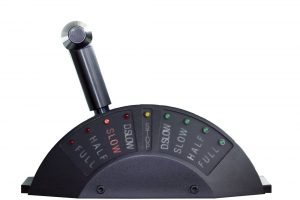Is Your CPG Startup Ready for Outside Sales Reps?
Is Your CPG Startup Ready for Outside Sales Reps? https://csuiteold.c-suitenetwork.com/advisors/wp-content/themes/csadvisore/images/empty/thumbnail.jpg 150 150 MIchael and Bonnie Harvey https://secure.gravatar.com/avatar/dfe7dbddd973f4b41b9f0e9b47ad6323?s=96&d=mm&r=g
Every Consumer Packaged Goods (CPG) business comes to the point where the founder asks themselves—” Am I ready to hire a salesperson?” In order to find an answer, you must ask yourself a few more questions:
Do you imagine replacing yourself in your territory?
Because outside sales reps are generally based in their own territories, replacing yourself would likely require a salesperson who’s already in your area. Ideally, you’d introduce them to each of your accounts with confidence that they’d maintain and grow the relationships you’ve cultivated in that territory.
Do you imagine yourself opening a new territory with your new salesperson?
The ideal rep for a certain territory would come from that territory. Sales representatives may have worked for many different brands throughout their careers, but they’ve probably done so in the same area.
Financially speaking, are you ready to hire a new sales rep?
And by “ready”, we mean–can you afford it? Do you have the funds to pay the rep’s base salary and expenses for their sales? If you do, for how long? Can you cover the bills long enough to “prime the pump”, so to speak? And when will you be able to break even?
Do you think it’ll take 6 months or more–in other words, within 6 months they will earn more than it costs to pay them, their expenses, and commissions? Beware! This could be a dangerous assumption and requires delicate handling. It has to do with your salesperson’s performance in developing and maintaining your brand’s image in their territory. In our case, we planned on having a year to break even in new territories. We were surprised by accounts, reps, and territories who were able to break even, and make a profit at that, much sooner!
So what do you need in your artillery before you try to commit to a new territory sales rep? Well, what’s the base salary rate in that territory? And what kinds of expenses are you likely to expect? All of these things vary from territory to territory, so it’s vital that you do your homework! Ask other industry folks in that territory. But heed warning! If your salary is too high, your new sales rep might not be incentivized enough. If it’s too low, you run the risk of not attracting an effective salesperson. Ideally, you will guarantee a commission structure to your employees that is based on growth, sales, and profitability.
In our case, we identified the key accounts we wanted to be in–the ones we thought would help us generate a profit the fastest, and the ones who we thought would help our new salespeople get commission sooner. The “low-hanging fruit”, in other words. Then, we hired the best rep to fit those accounts. Getting a referral from buyers was a huge help in finding the best reps. If we hired their referral, we got into their account sooner! But in order for the sales rep to keep the account, they had to perform.
Some people might think that they need to have enough sales in their current territory before expanding. This isn’t always the case. But it is always the case that you need to be able to afford the basics in a new territory for a certain amount of time without income. The shorter, the better!
Ultimately, the business owner will have to give their own territory to a replacement. But when? The answer to that question has to do with the effort the owner wants to put in. They can either keep their sales position and hire a CEO, or they decide to oversee new territories, training new salespeople and holding them accountable for their work. Yes, there will be turnover. The owner will be taken away from their accounts at one point or another–this is just the nature of business growth. It might seem like a great idea to replace yourself at first, but it might not be financially sensible.
What do you need to provide in order to compete with other CPG companies for your sales reps?
Of course, you’ll have a hard time matching your competitors’ established benefits packages when you’re new. But your offer will still have a very attractive component–the chance for the sales reps to build a brand in their own territory. Even the “Territory Brand Manager” title indicates that this salesperson has reached a focal point in his or her career.
Based on your reps’ achievement of certain metrics, try to negotiate for future benefits. The job title and the opportunity to be responsible for building a brand will offset the concession if they are an entrepreneurial, confident go-getter! You want this type of employee anyway!
Whatever you negotiate, there’s no doubt you’ll be out the “guarantee” or base salary, and expenses. So start saving! And get an accountant to give you all the details for that specific territory in terms of income and cost of sales. You might be pleasantly surprised to learn that some territories will return much more quickly on your sales rep investment than others!
Conclusion
When it comes to financially supporting the decision to hire outside sales reps, there are multiple moving parts to consider. There’s no one right way to do things. The only thing you can do is your homework–and be careful! Your salespeople represent you, your brand, and your products in a new territory. Some risk-taking will be necessary, so start calculating and proceed “All ahead slow!”
For more, read on: http://c-suitenetworkadvisors.com/advisor/michael-houlihan-and-bonnie-harvey/


